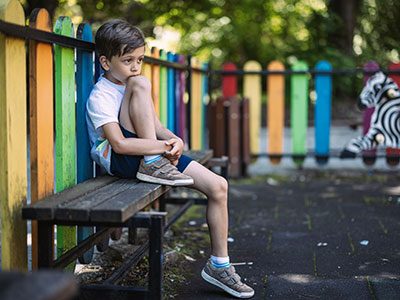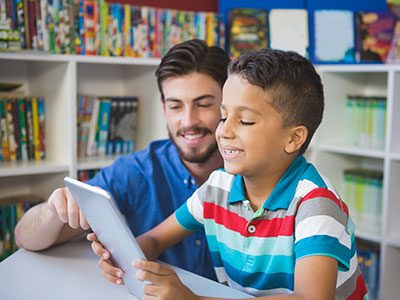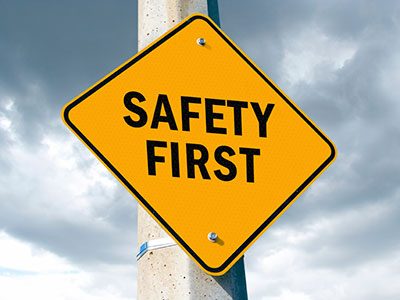With the distraction of outdoor activities, video games, time with friends and mobile devices, reading and other academic activities aren’t often at the top of your child’s summer agenda. Which, left unchecked, may lead to summer learning loss, often referred to as the summer slide.
Research shows that on average, students’ achievement scores can decline over summer vacation by one month’s worth of school-year learning.
Kristina Hardy, Ph.D., a neuropsychologist within the division of neuropsychology at Children’s National Health System, answers frequently asked questions about staying academically healthy and provides tips for parents looking to avoid summer learning loss.
What happens to a child’s brain if it is not academically active during the summer?
With children, it’s all about growth all year-round. If a child isn’t academically engaged over the summer then the content gained throughout the school year can be lost. Keep in mind that summer learning loss can be cumulative. Academic content lost over successive summers begins to add up and can set your child back in terms of long-term learning.
If there is one academic activity kids should try to focus on over the summer, what is it?
While other subjects are important, reading is the gateway to learning. After the third grade there is a shift from learning to read, to reading to learn. If your child isn’t engaged in reading, then they aren’t building skills that will help them understand other subjects and access related content that is only unlocked by reading.
How often should a child read over the summer?
It’s all about quality of the book, the level of interest your child has in what they are reading and how closely the reading material matches their academic literacy. The book should be at a reading level similar to where the child was at the end of their most recent grade to make sure critical literacy skills are reinforced.
How can you promote reading when kids are not in school?
Children are more engaged in books that they pick themselves. When in the library, allow your child to pick out books on their own. Parents can help select reading material if your child tends to choose books beyond their reading level or if you plan to actively engage with your child in reading that book. When making choices with your child, try to keep in mind the literacy skills your child needs to practice over the summer.
What should parents do if a child has difficulty with reading?
One thing that I often recommend is audio books. From the perspective of literary skills and comprehension, there isn’t much of a difference between listening to a book and reading a book. For example, in terms of reading comprehension, making predictions, inferences within the text, understanding character development and story sequences are all things kids do with audio books as they do with a physical book. While audio books shouldn’t completely replace print books, they can serve as a good alternative and create a great way for families to enjoy books together.
This blog post originally appeared in Northern Virginia Magazine online.
 https://riseandshine.childrensnational.org/wp-content/uploads/2024/07/sad-boy-feature.jpg
300
400
webteam
https://riseandshine.childrensnational.org/wp-content/uploads/2017/11/childrens_riseandshine_logo.jpg
webteam2024-07-10 13:43:222024-07-11 13:00:06Helping kids stay connected during summer break
https://riseandshine.childrensnational.org/wp-content/uploads/2024/07/sad-boy-feature.jpg
300
400
webteam
https://riseandshine.childrensnational.org/wp-content/uploads/2017/11/childrens_riseandshine_logo.jpg
webteam2024-07-10 13:43:222024-07-11 13:00:06Helping kids stay connected during summer break


 Kristina K. Hardy, PhD, was a pediatric psychologist within the Division of Neuropsychology at Children’s National and an Associate Professor in the Departments of Psychiatry & Behavioral Sciences and Pediatrics at the George Washington University School of Medicine.
Kristina K. Hardy, PhD, was a pediatric psychologist within the Division of Neuropsychology at Children’s National and an Associate Professor in the Departments of Psychiatry & Behavioral Sciences and Pediatrics at the George Washington University School of Medicine.






Leave a Comment
Want to join the discussion?Feel free to contribute!